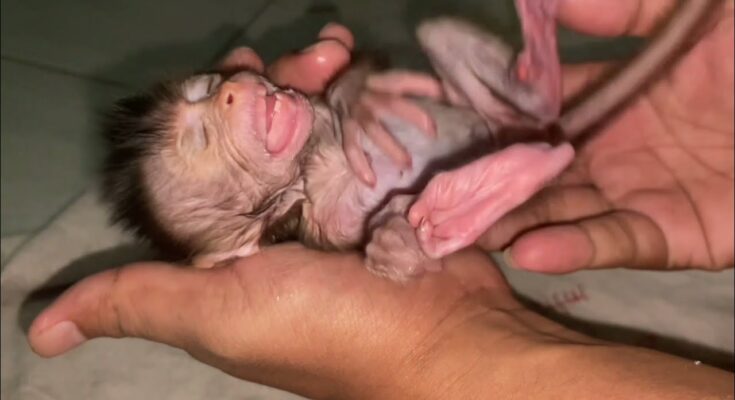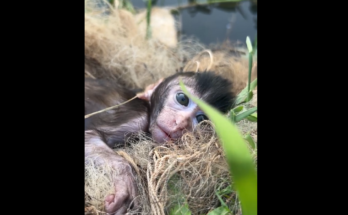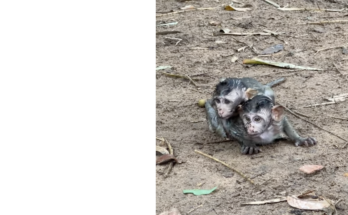It’s easy to assume that newborn baby monkeys are helpless, fragile creatures, clinging to their mothers with wide eyes and soft cries. But nature doesn’t always follow the script. Occasionally, a newborn monkey can show an unexpected, even shocking level of aggression from the moment it enters the world. This rare but fascinating phenomenon challenges the common perception of infant primates and offers a glimpse into the complexities of animal behavior.
In some cases, a newborn baby monkey may lash out at anything that comes near — including its own mother. With tiny fingers curled into fists and surprisingly strong jaws, the infant may bite, scratch, and shriek at contact. The aggression could stem from several potential factors. One possible explanation is stress during birth. If the delivery is particularly difficult, the newborn might emerge highly reactive, perceiving any touch as a threat. Another possibility is a hormonal imbalance, where elevated levels of stress hormones like cortisol flood the infant’s system, keeping it in a state of heightened alert and aggression.
Aggression in newborn monkeys can also be linked to survival instincts. In some species, competition among siblings or even other infants in the troop can be fierce. Although rare in single births, a particularly aggressive baby might be biologically wired to establish dominance early. This could explain why it instinctively attacks, even though its survival still depends entirely on maternal care.
Interestingly, the mother’s response to an aggressive newborn varies widely. Some mothers, especially first-time mothers, may become confused or even reject the baby, unable to understand why their infant fights them. Others, particularly experienced mothers, show remarkable patience, holding their baby gently despite the thrashing and bites, soothing it with soft vocalizations and grooming. The bond between mother and baby is crucial, and aggression at such an early stage can jeopardize the relationship if the mother is unwilling or unable to cope.
Researchers studying primate behavior have documented cases of newborn aggression in both captivity and the wild, though it remains rare. Such cases raise questions about the influences of environment, genetics, and even maternal stress during pregnancy. Could the mother’s own anxiety be passed on to her baby in the womb, setting the stage for an aggressive temperament at birth?
While most newborn monkeys settle into the safety of their mothers’ arms without conflict, the rare aggressive infant serves as a reminder that animal behavior, even at the very beginning of life, can be unpredictable, shaped by a delicate interplay of biology and environment.



